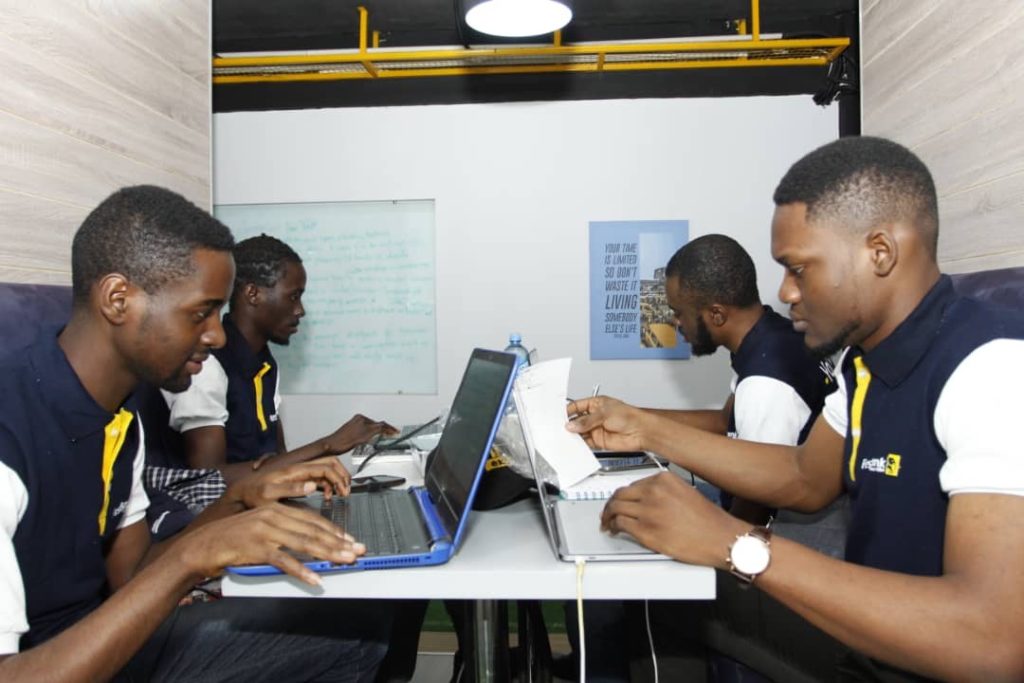Bolu and Chimgozirim here again,
It’s a new week and we hope you got some rest during the weekend. It appears everyone in Lagos got married this weekend. Did you get married or attend a wedding ceremony? Let us know.
In Côte d’Ivoire, drivers on the Yango app will benefit from cheaper data plans thanks to a partnership between the mobility company and MTN.
The partnership covers drivers in the capital, Abidjan, and will enable them to save as much as $8 on Internet, voice, and data services. Furthermore, Yango drivers affiliated with a fleet will be able to call members of the fleet at reduced prices.
Here are today’s stories.
- CBN to start freezing accounts without BVN or NIN
- Amini raises $4 million six months after $2 million funding
- South African tech companies slow down hiring
CBN to freeze bank accounts without BVN and NIN by April 2024

Bank accounts that are not linked to a bank verification number (BVN) and national identity number (NIN) by April 2024 will be frozen.
Says who? The CBN gave this warning on Friday, December 1, 2023, in a circular sent to banks. It said this new directive is to “promote financial system stability and strengthen the Know Your Customer procedures in all financial institutions,” but there seems to be more to it.
Combating Tier 1 fraud: At Prembly’s Compliance Dialogue, CBN said it is working with the Nigerian Inter-Bank Settlement System (NIBSS) to combat fraud, and one of the major loopholes fraudsters are using is a Tier 1 bank account.
These accounts do not require an NIN or BVN to be opened, making them easy for fraudsters to set up.
Consequently, the CBN has mandated all Tier 1 accounts to be linked to a NIN or BVN, while Tiers 2 and 3 must be linked to NIN and BVN.
Accounts with BVN still need to be revalidated: If your account is already linked to a BVN and NIN, you’re not in the clear. According to the CBN, these accounts need to be revalidated by January 31, 2024.
Zoom out: Remember when Fidelity Bank stopped transfers to fintech platforms including OPay, Moniepoint, and PalmPay over lax KYC? Well, it seems many Tier 1 account holders reside on fintech platforms, and this recent move by CBN could hit fintechs harder than banks.
Kenya’s Amini raises $4 million seed, six months after the $2 million pre-seed round

At six months old, Amini, a Kenya-based tech startup, raised a $2 million pre-seed to make climate data in Africa more accessible.
At one year old — after six months — it has raised $4 million in a seed round led by Salesforce Ventures and the Female Founders Fund. Other investors, including Pale Blue Dot and Superorganism, were part of the company’s funding in May 2023.
What does Amini do? Amini is an unconventional climate-tech startup. Instead of trying to build solar panels and windmills, the one-year-old startup is aggregating climate data on the continent.
With the help of artificial intelligence and satellite imagery, it helps organisations understand the impact of floods, famine, and natural disasters in Africa from as far back as 20 years ago.
Raising $6 million in one year? Amini’s founder and CEO, Kate Kallot, has a track record that not only makes her fit to build the solution but also commands huge investments for a one-year-old startup.
She has taken on roles in artificial intelligence (AI), machine learning, and deep tech at companies such as Intel and Nvidia.
South African tech companies are hiring fewer employees

According to the Career Junction Employment Insights, South African tech companies hired fewer employees between August and October 2023.
Compared to the previous three months, hiring activity in the country’s tech sector fell by 6%, placing it as one of three sectors that saw a decline in hiring activity.
The report attributes this development to a slowdown in recruitment as well as companies wrapping up activities for the year.
In 2022, as the world battled with an economic crisis that forced investors to tighten their purses, tech companies were severely affected. Unable to raise further capital from venture capitalists and seeing declining revenues, many were forced to lay off employees.
164,969 employees were laid off by 1063 tech companies in 2022. That number has already been exceeded in 2023, with 253,629 employees laid off at 1138 companies. Companies of all sizes have been affected with Amazon, Meta, Twitter, and Google, some big tech companies that have let employees go.
Despite the slowdown in hiring, the report states that tech skills remain in high demand across South Africa. Software developers, database designers, and systems analysis professionals are highly sought after.










